Brand Consistency Goes Farther Than ‘Twerking’
Whether you did or did not watch the VMA Awards in August, you know you watched the video or at least saw pictures of the half-naked Miley Cirus “twerking”. I won’t even make you admit you Googled “twerk” (though you’d be admitting the Oxford Dictionary folks (Oxford Dictionary Decides ‘to Twerk’) are hipper than you) to find the definition of “twerk”, while simultaneously wishing you hadn’t.
So, let’s assume you did not lose considerable thought or time deciding whether it was sexist to be unhappy with Miley Cirus’ actions, and whether, in fact, Robin Thicke is the anti-feminist, worst-thing-to-happen-to-women-since-Binder-Full-of-Women. You still found yourself somewhat repulsed by Miley. Right?
Well, guess why? Because, you found out about Miley from Disney. And Disney is wholesome, dammit. And you want some consistency! Lady Gaga, Katy Perry, and dozens of other stars could have taken the stage and done far worse, and we would never have discussed this. But, dammit, this was a Disney star!
Well, Twerk it out people. (I had to)
This need for consistency in branding, is no different than brand consistency in your resume, and in how you interview. And, really helps me illustrate the point I go over, quite often, with the candidates with whom I work. Are you doing something inconsistent with your brand? Have you said one thing, but advertised another? This is when people get up in arms., and you are not hired.
Decide on Your Brand
Guess what. Snarky-but-fair, always on time, Work-a-holic? Once you describe yourself this way, or answer a question with “my passion is…” You have defined your brand with this potential employer. Stick to this. (But, please — pre-decide this!)
Stay Consistent With Your Brand
Candidates uniformly hate the standard, “what are your strengths?” But, this is another way of saying “what do you highlight about yourself?” Or, “what is your brand?” But, this is not a phone-it-in question. Think this through. And, think of the stories and other (expected) questions that will allow you to highlight this answer.
- If you answered that you are “quick to think on your feet”, then you should be able to handle each interview question as they come, right?
- Did you answer that you are a “strong leader”, then, when asked for a weakness, highlight an example where you didn’t speak up, though you knew your team’s assessment was incorrect?
Stay consistent. There are expected questions. Prior to your resume, go through your successes, failures, examples of ___, etc., and view each under the scrutinizing lens of, “does this contradict my brand?”
Examples of Inconsistency
The problem with starting this article with a Disney-star-turned-sexual-gyrating-twerker, is that it’s too easy for people to feel secure in their position of not being her. “I am consistent.” But, brand inconsistency is subtle in interviews — and most often occurs only when all interview team members get together and compare notes.
Examples:
A Project Manager answers Interviewer A that he is Pleasantly Persistent, when asked about his ability to keep resources on track and on task.
She answers Interviewer B’s question about the ugliest confrontation that she has had, with an example of her having yelled at people — repeatedly — until she ultimately lost it, and the resource succumbed. Now, it was a success in her mind — and perhaps Interviewer B agrees. But, when B compares notes with A, neither can see her as the Pleasantly Persistent project manager. Inconsistent branding cost her this job.
When in Doubt Talk it Out
If you are unsure whether you are being inconsistent, consider practicing your answers. Ask a friend, significant other, “does this example contradict this statement?” Many questions are expected. Work out your story-based answers in advance– wherever possible — and make sure you have tellable stories that promote your brand. Your message. Who did you say you are? Be that.


